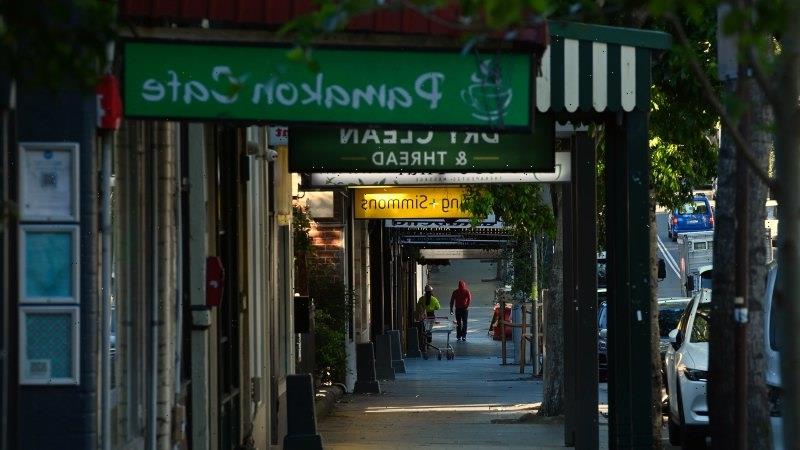For our free coronavirus pandemic coverage, learn more here.
Federal financial support to NSW businesses hit by COVID-19 lockdowns will be turned off once the state hits its 80 per cent vaccination target, pushing any further assistance on to Premier Gladys Berejiklian and Treasurer Dominic Perrottet.
In a sign of the federal government’s expectations that the state economy will bounce back quickly from current lockdowns, Treasurer Josh Frydenberg on Wednesday confirmed the financial lifeline it has delivered to NSW will end within weeks.
The reopening of NSW as it hits vaccination targets will mean a reduction in federal government business support.Credit:Kate Geraghty
NSW businesses have been able to access payments of between $1500 and $100,000 a week depending on their payroll. Non-employing businesses could receive $1000 a week.
Businesses had to maintain their headcount as of July 13 and show they suffered a fall of at least 30 per cent in turnover.
The federal government has been covering 40 per cent of this multibillion-dollar program since July.
But as the state hits the 70 per cent and then 80 per cent vaccination targets, eligibility thresholds for businesses mean the support will start to end. Almost 63 per cent of people in NSW over the age of 16 are now fully vaccinated. The 70 per cent target is expected to be reached around October 11 and the 80 per cent is forecast to be hit in late October.
Once NSW hits 70 per cent, the federal government will reduce its subsidy for the state’s businesses from 40 per cent to 30 per cent. This will reduce the amount payable to local firms.
When NSW reaches 80 per cent, the federal government will end its subsidy completely.
Businesses are expected to see a sharp lift in their turnover levels, making them ineligible for the payments.
But the Berejiklian government is putting together its own support package to help businesses affected by the lingering impact of lockdowns, which is expected to be announced on Thursday.
Treasurer Josh Frydenberg said under the national plan for the reopening of the economy, federal contributions to business support programs would end.
“At this point it will be a matter for each state to decide whether any additional targeted business
support is needed in their jurisdictions as a result of any health restrictions they elect to impose,” he said.
“We can’t eliminate the virus, we need to learn to live with it in a COVID-safe way. Our economy has bounced back strongly before once restrictions are eased and is well-positioned to do so again when lockdowns lift.”
The winding down of the business support is in line with the federal government’s decision this week to gradually end COVID disaster payments which are made directly to individuals.
The disaster payment provided $450 a week to those who have lost fewer than 20 hours of work a week and $750 for those who have lost more. Those on income support have received an extra $200 a week.
Under this scheme, people will have to reapply each week to continue receiving the payment once a state or territory hits 70 per cent full vaccination. At 80 per cent, the payment will be reduced over two weeks.
Shadow treasurer Jim Chalmers said no one was arguing support for programs to go on forever, but argued it was too soon to remove them.
“What we are arguing, is that they are tailored to the economic conditions. Nobody who looks at what’s going on in NSW or Victoria right now could objectively argue that people aren’t still doing it tough,” he said.
“The support needs to reflect that. What we need from the government is urgency when it comes to their responsibilities, empathy when it comes to the support that we need to be providing people, and we need them to bring people together rather than pick these unnecessary fights.”
The Morning Edition newsletter is our guide to the day’s most important and interesting stories, analysis and insights. Sign up here.
Most Viewed in Politics
From our partners
Source: Read Full Article

